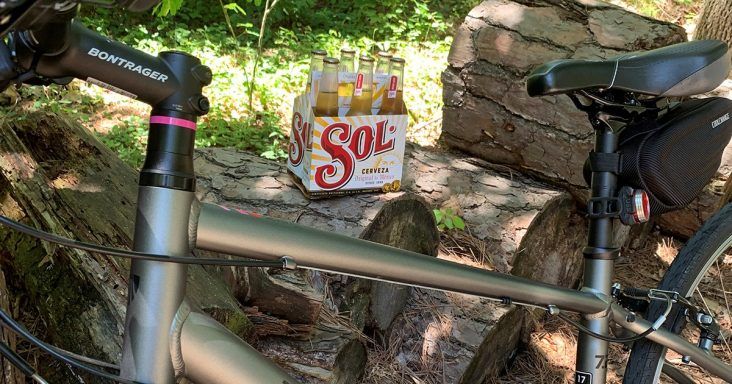New Arkansas law gives cities power to adopt ‘open container’ ordinances
by June 25, 2019 2:51 pm 4,049 views

A new state law gives cities the opportunity to pass ordinances to allow for public alcohol consumption in permanent and temporary entertainment districts.
Drinking alcoholic beverages in public places like sidewalks, biking trails or parks has historically been against the law in Arkansas.
But a new law now gives cities the option for adopting local ordinances to create open container districts with a goal of promoting entertainment and tourism. The law recently signed by Gov. Asa Hutchinson also gives cities the option to adopt temporary open container ordinances for festivals and other events. Arkansas joins 15 other states that permit public drinking in certain cities or select entertainment districts.
Mountain Home was the first city in the state to formally pass an ordinance creating an entertainment district downtown with the open container capability, aimed at driving economic development. Mountain Home Mayor Hillrey Adams told Talk Business & Politics the city survives largely on tourism dollars generated from thousands of visitors who flock to the area for fishing.
“There is plenty to do in the daylight hours on the great lakes around here, but the streets of downtown roll up before sundown in our quaint little town,” he said. “Last week our city council passed an ordinance creating an entertainment district where alcohol can be served and consumed outdoors in hopes of creating some venues to support nightlife in Mountain Home.”
He said the downtown area has plenty of history but lacks investment dollars. He hopes the new ordinance creating the district will generate some interest. Adams said the vote to create the district was tied 3-3 and he cast the deciding vote because the city needs to generate demand for old, empty buildings around the courthouse.
Adams said there was little opposition from the community with the new ordinance, but the city council did make one concession — when the open container district is used for a family event (Friday Night Block Party) held once a week for 18 weeks during the summer. He said during this event, the open container ordinance does not go into effect until after 10 p.m. That gives the families who take part-time to enjoy the festivities and leave before alcohol consumption is allowed outdoors.
He said the new entertainment district encompasses about 10 city blocks from East Ninth Street to East Fifth Street along Church and Baker Streets. He said there were some exclusions within and near the district such as the county courthouse and Veteran’s Plaza across the street, as well as nearby Hickory Park.
“People are always saying to go look at Bentonville and what they have done to their downtown in recent years, and I will say Bentonville did it right,” Adams said. “But we have to focus on what we have here in Mountain Home and I believe creating an entertainment district is the first step to revitalizing our downtown. We have to do something to keep the young folks we have here and make the visitors want to stay over and come back. I know this will take time but we opened the door for investors and we’ll see what happens.”
Mark Bertel, a co-founder of Borderline Clothing in Mountain Home, said seeing the new ordinance passed is exciting.
“This is much bigger than a glass of beer,” he said. “It’s a movement for our city to spike interest in investment and draw more events to the region.”
MUNICIPAL REACTION
Talk Business & Politics asked several mayors across Northwest Arkansas how they might adopt open container ordinances or interpret the new state law.
Rogers Mayor Greg Hines said his team worked with the state municipal league to help craft the new law allowing for permanent and temporary entertainment districts that allow open containers.
“We are particularly interested in the temporary districts and will probably dip our toe in the water here to see how it might work at an event,” Hines said. “This could provide learnings before a more permanent district is considered.”
Hines said he could see applications for downtown Rogers and in the Pinnacle Hills area off of Interstate 49, near the Walmart Arkansas Music Pavilion (AMP). Hines said there are festivals that could also benefit from having a temporary district and where the city now gives permits for special events sometimes held downtown, he could see the temporary status being extended so that other downtown businesses could benefit.
Hines said the entertainment districts shouldn’t be compared to a “red light district” found in Amsterdam, or even Bourbon Street in New Orleans.
He sees the ordinance as a benefit for restaurants, pubs, music venues and other businesses that could benefit from more traffic downtown. Hines said there could even be some blanket applications of the law that could cover the whole state.
“I like the options this law allows and think it can be managed properly,” Hines said.
Springdale Mayor Doug Sprouse said he has not engaged in any discussion about such an ordinance in Springdale, “but I wouldn’t be surprised to see someone asking to bring that forward at some point.”
Fayetteville Mayor Lionel Jordan was on vacation this week and could not be reached. Other Fayetteville city officials declined to comment. Talk Business & Politics also did not get a response from Bentonville Mayor Stephanie Orman.
